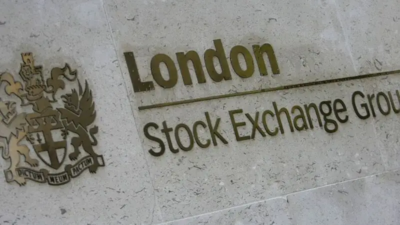2023 was an ‘extinction’ level year for tech startups. Where did all the money go?
Startups are not having a good 2023. And the investors who handed out billions of dollars to fund them aren’t very happy about it.
During more flush years, venture capitalists, angel investors and billionaire evangelists poured their cash into tech startups – the easy money pipe was seemingly open to any Tom, Dick or Harry who had an idea and was willing to attach a buzzy phrase like ‘blockchain’ or ‘AI’ to it. Valuations soared and unicorn companies, those startups said to be worth $1 billion or more, proliferated.
But now, with high interest rates, an uncertain economic environment and a banking crisis that hit Silicon Valley-adjacent banks hard, there’s been a shortage of funds for early-stage companies and a lack of opportunity for late-stage companies to cash out.
For investors looking to maximize their money, better opportunities exist elsewhere.
In this environment, money sitting in less risky money markets tends to pay better than high-risk startups. The Bloomberg US Aggregate bond index, a widely-tracked benchmark for the performance of US Investment-grade bonds, logged a 4.5% return in November. That’s the index’s best monthly performance since 1985.
The risks are high with a startup. Sure, tech titans like Apple, Amazon, Alphabet and Microsoft are doing just fine – but their younger siblings are struggling to stay afloat.
So, why would a potential investor stick their neck out for a tech startup when they can get paid to sit on cash instead?
Venture capital funding for startups across the globe has fallen by more than half since last year, according to new Pitchbook data – the annual fundraising figure for 2023 is pacing towards its lowest level since 2015.
With a lack of both funds and exit opportunities (that’s when shareholders are able to cash out by selling a bunch of stock through an acquisition, IPO, buyout or merger), early stage companies are unable to get started and late stage companies are falling into distress. When a company is private, opportunities to sell shares tend to be fewer and farther between.
So far this year, nearly 20% of all startups have raised money at a lower valuation than they had previously, according to equity management company Carta. That’s up from 5% in 2021.
More startups have shut down in the third quarter of 2023 since Carta began tracking the data almost five years ago. So far this year, 543 startups on Carta’s platform have shuttered.
The carnage is so bad that some insiders are calling this an extinction-level event for startups.
Some of these firms had previously raised a lot of money. Big names like WeWork, which raised $11 billion in funding, and freight startup Convoy which brought in $900 million, have both filed for bankruptcy in the past two months.
Other companies are still holding out, but they’re at a standstill while shareholders hope they can ride out the storm and cash out at a later time. Through the first half of the year 2023, people received about $12 billion from 588 separate corporate exits. The full-year figure is now on track to come in as the lowest of the decade, according to the report.
“An immense amount of capital remains trapped in late-stage and venture-growth-stage startups hesitant to gamble on whether their financial performance can withstand the intense scrutiny of the public markets,” found a PitchBook report.
What comes next: Venture capitalists are sitting on a record amount of “dry powder” (that’s capital that’s been committed but still waiting to be invested) according to PitchBook.
And while startup funding and exit strategies may remain tight for the next year, analysts say that there are some promising signs ahead.
AI and biotech funding still remain relatively strong, wrote Allan Parks, manager at private equity platform Allvue, in a recent note. Initial public offerings are slowly picking back up and the venture scene in Europe is “witnessing some promising fundraising activity,” he added.
Still, he said, “for venture capital managers and investors, 2023 was a wild ride – and not necessarily in a good way,”
Additional reporting by Krystal Hur.
Maybe You Like
London Stock Exchange urged to do more to hold onto retail traders
The UK stock market needs to improve investor communication and engagement in order to retain its individual traders, according to a report from online trade and investor provider CMC Markets. ADVERTISEMENTUK retail investors are increasingly...
Hargreaves Lansdown rejects private equity takeover bid
The UK investment platform says the offer from a group including the Abu Dhabi Investment Authority undervalues the firm. ADVERTISEMENTHargreaves Lansdown has rebuffed a takeover proposal worth £4.67 billion (€5.48 billion) made...
Ferrovial set to offload UK regional airports amid Heathrow deal uncertainty
Ferrovial is planning to sell its stake in three UK regional airports amid difficulties in finalising its £2.4bn sale of a 25% stake in Heathrow. ADVERTISEMENTSpanish infrastructure company Ferrovial is reportedly putting up for sale...



























